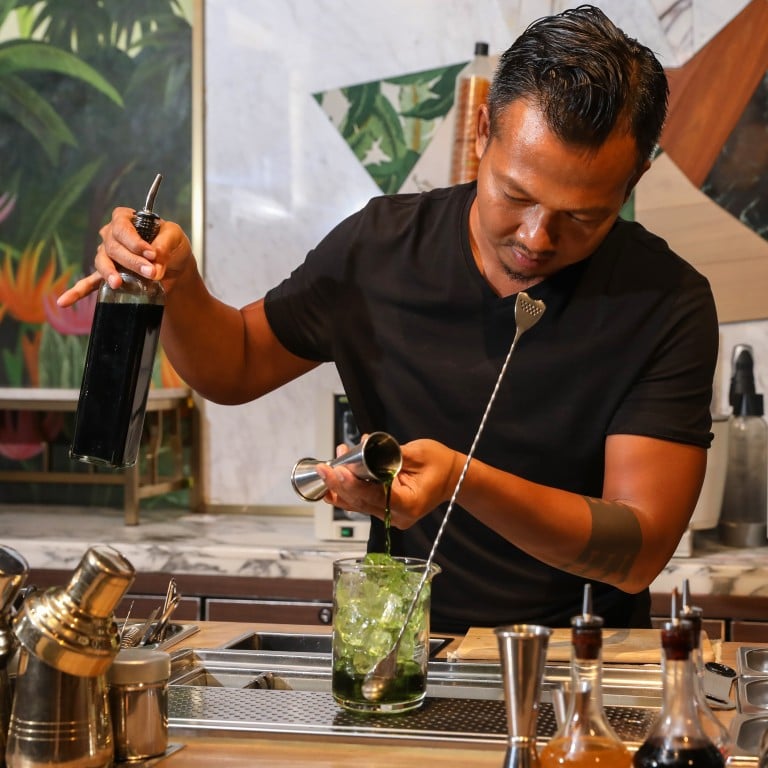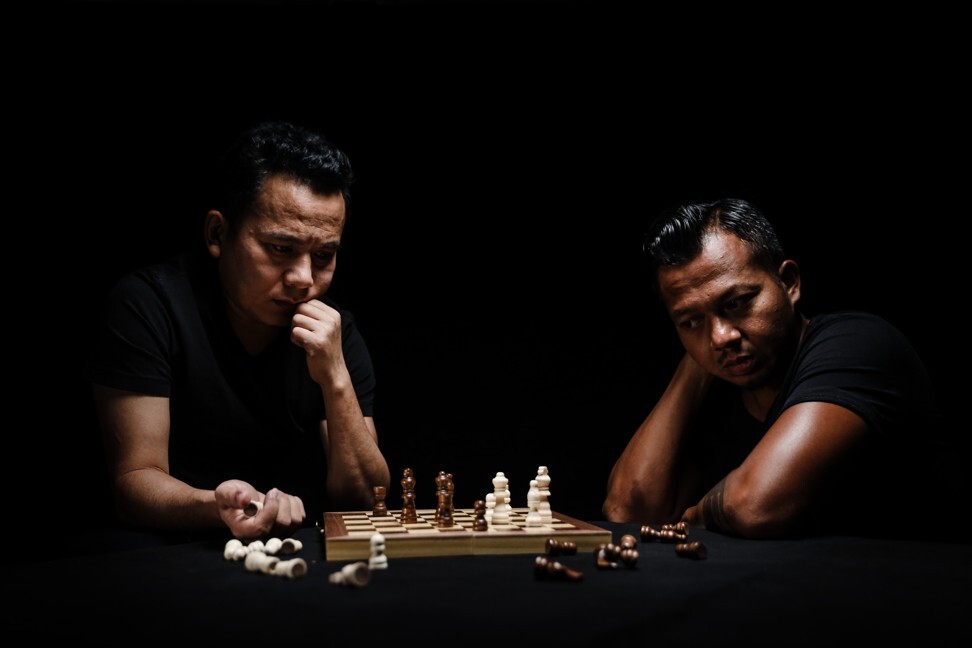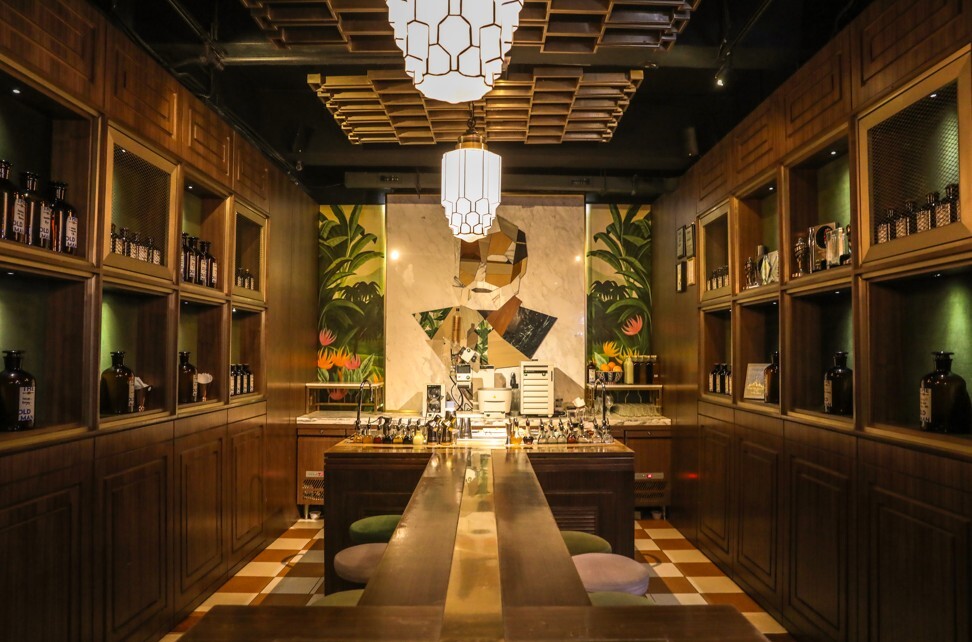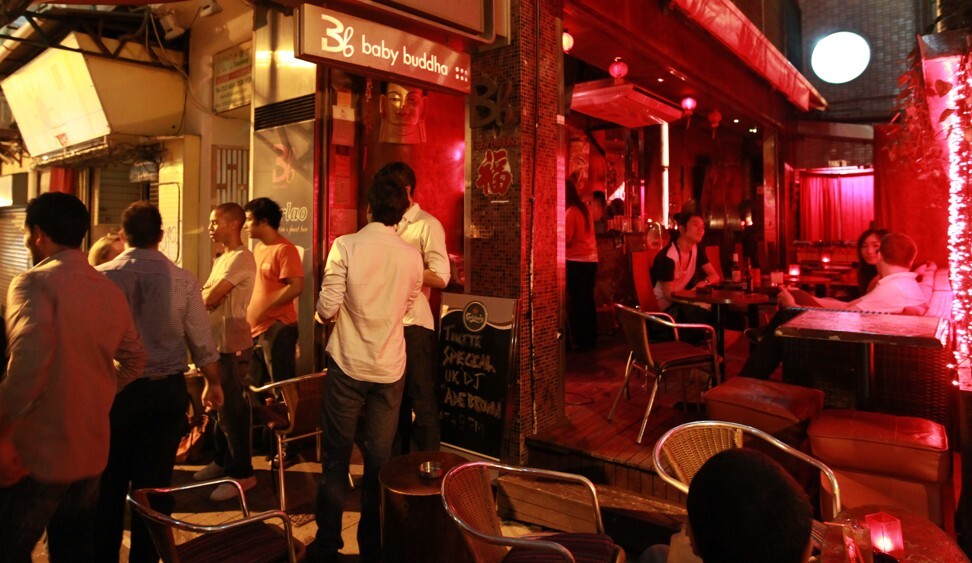Hong Kong’s first ‘sustainable’ bar Penicillin: second-hand furniture, bills by email and leftover cocktail ingredients made into hand sanitiser, from the team behind Asia’s 50 Best Bars award-winner The Old Man

When The Old Man opened three years ago, it arrived at the perfect time to crest the second wave of molecular mixology cocktail bars in Hong Kong. The first wave was driven almost single-handedly by Antonio Lai. His early concepts at Quinary, Origin and The Envoy pioneered the trend in this city, and all featured in the inaugural Asia’s 50 Best Bars Awards in 2016. With a focus on innovative recipes and techniques, these venues provided a counterpoint to the more traditional hotel bars that were previously the only game in town for anyone serious about their cocktails.
It was out of the hospitality industry that Agung Prabowo and Roman Ghale, two of the co-founders of The Old Man, emerged. Prabowo, among other accomplishments, had helped make Lobster Bar and Grill, at Island Shangri-La, a destination for its drinks; Ghale had excelled as senior bar and restaurant operations manager at The Upper House.
Just imagine, it’s a Noma, but doing it for drinks instead of food
7 hottest new Hong Kong restaurants to try now dining out is a thing again

Together with James Tamang, former bar manager of Vibes, at The Mira in Tsim Sha Tsui, they opened The Old Man. The bar launched with the strong reputations of its founders, an attractive speakeasy location, an exciting menu complete with beguiling literary themes, and affordable prices. It was an instant success. Within two years the bar was number one on Asia’s 50 Best list and the queue to get in stretched from its alleyway off Aberdeen Street all the way to the roadside.
Not everything lasts forever, though. Prabowo and Ghale announced this month that they are leaving The Old Man, citing “internal issues”. If three years ago molecular mixology was de rigueur, these days there is a new buzzword in F&B – sustainability. Once again, Prabowo and Ghale hope to lead the charge and ride a rising wave.
“(Penicillin) is going to be the first sustainable bar in Hong Kong,” enthuses Prabowo. “There’s big talk about sustainable food and restaurants, so why not bars?”
Penicillin opens this month, taking over the space off Hollywood Road formerly occupied by Buddha Lounge. Prabowo is realistic about the challenges of operating a sustainability-focused bar in a place as small as Hong Kong, where there is little in the way of local agriculture. Being 100 per cent sustainable here is “nearly impossible” but he aims to come close via a closed loop cycle that will seek to get the most out of any ingredient.
Prabowo explains how that might work: “We squeeze the lemon juice for a drink. So what can you do with the skin? Use it as a garnish. The husk, the seeds … Maybe we can send it to the kitchen to use them as an ingredient in food, or send it to our lab to use in hand sanitiser. We want to use everything to the fullest.”

To that end, Penicillin is not just a bar. The aforementioned lab will recycle waste products into usable items such as paper or essence. A fermentation room, visible to customers, will help create both food and drinks. The fourth element, the kitchen, will supply “bar food – not snacks”, stresses Ghale.
Forget Asia’s 50 Best Bars – these are Hong Kong’s best nightlife venues
The sustainable elements go beyond food and drink. Fixtures from Buddha Lounge are being kept to avoid having to create and ship in entirely new decor. Staff outfits are being made of recycled cotton. Furniture is being crafted with wood from trees that were blown down during last year’s typhoons. Bills will be sent via email unless a customer specifically requests a paper record, which will come on recycled paper made by the bar itself. “Just imagine, it’s a Noma, but doing it for drinks instead of food,” says Prabowo, mentioning he even intends to forage for local ingredients the same way Danish chef René Redzepi has done at his celebrated Copenhagen restaurant.
It’s an ambitious undertaking, but Prabowo and Ghale are determined to give it their best shot. “To be honest, we’ve taken it too easy for too long with food waste in this industry,” explains Prabowo. “We’re growing, getting older, and we feel like we need to make a change for ourselves and our business, and contribute to the local community and to the world.”

A sense of legacy motivates Ghale, too. “Hong Kong is our home,” he says. “We’ve been here for nearly 15 years now. We have learned here from this community, and we want to give something back. We haven’t done this kind of thing before, but it’s a good experience for us, learning something new.”
The pair have not been put off by the spectre of Covid-19 either. If anything, it has only encouraged them. “We had plenty of time when the bars were forced to closed [because of government restrictions], to think, what do we want to do?” says Prabowo.
“Rents are going down, and a lot of places are closing. We wanted to challenge ourselves. We wanted to bring a different concept to the market.”
How Hong Kong’s best Japanese bars elevate a night out into an art form
As a result, Penicillin is not Prabowo and Ghale’s only new opening. Dead & is a dive bar opening in the space once occupied by Baby Buddha in Lan Kwai Fong, and is set to welcome customers in early November. “It’s totally ying and yang with Penicillin,” Prabowo tells us, who explains that the menu will feature everything from Japanese highballs on tap to an “Asian piña colada” made with pandan, to canned beers available to grab and go from a vending machine. Prices should be about HK$50 (US$6) down to HK$25 or HK$30 (US$3 or 4) during “cheapskate hour”.
“We’re not competing with other dive bars,” explains Ghale. “We’re competing with 7-Eleven.”
Leaving the bar they helped make Asia’s best, opening not one but two new concepts within weeks of each other, doing so during the Covid-19 pandemic, and looking to take on “Club 7-Eleven” – Prabowo and Ghale might just be Hong Kong’s bravest, boldest entrepreneurs, let alone bartenders. Are Hongkongers ready for all this?
“We honestly don’t know,” says Prabowo. “We asked that ourselves with The Old Man. Is Hong Kong ready or not? If no, we have to explain the concepts, who we are and what we do. The Old Man was our baby, but we need to move on. All good things must come to an end.”
Want more stories like this? Sign up here. Follow STYLE on Facebook, Instagram, YouTube and Twitter .

The Old Man’s Agung Prabowo and Roman Ghale are opening 2 new venues in Central: Hollywood Road’s sustainably focused Penicillin and dive bar Dead & – offering a ‘cheapskate hour’ and vending machine canned beers at 7-Eleven prices